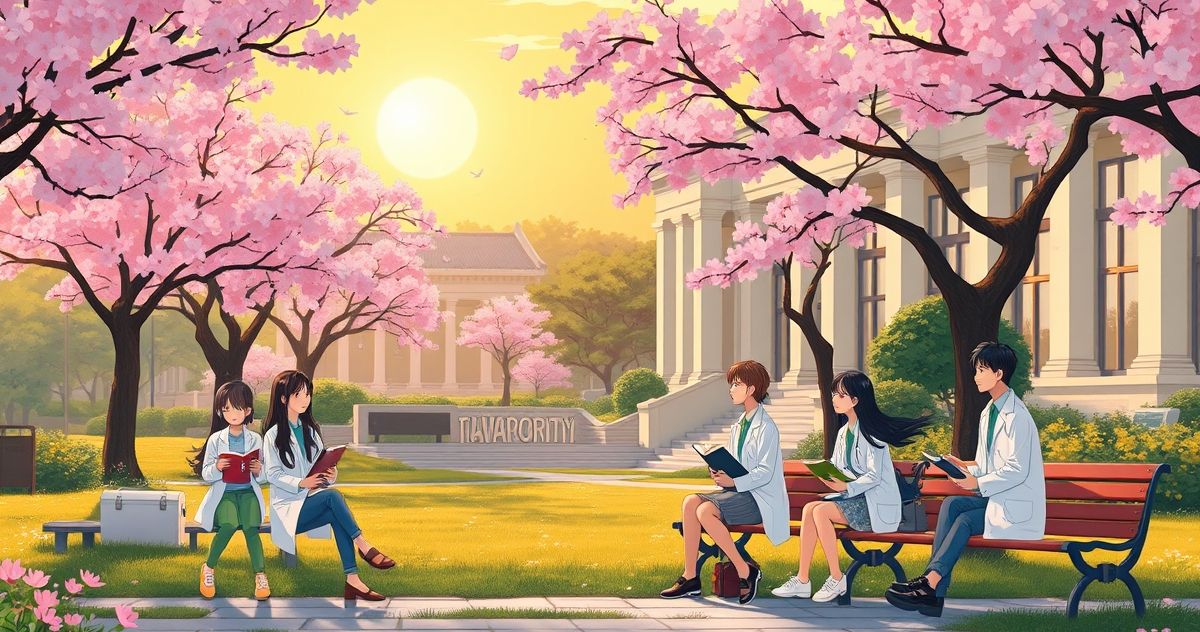Historic Resolution as Students Pledge to Resume Studies After Extended Strike
Medical students across South Korea announced their complete return to universities on July 14, potentially ending a 17-month healthcare dispute that began with opposition to government medical reforms. This landmark decision marks a significant turning point in the prolonged conflict between the medical community and government authorities.

Comprehensive Return Declaration
Medical students nationwide declared an end to their 'solidarity strike' that began last year, announcing their intention to return to campus. The Korean Medical Students Association made this announcement ahead of a scheduled meeting with the National Assembly's Health and Welfare Committee on July 14.
This return declaration appears to result from a combination of factors: expectations for policy changes under the Lee Jae-myung administration and growing social responsibility concerns about continued patient harm. Student representatives emphasized their decision stems from unwillingness to further compromise patient care.
A student representative stated, 'We decided to return based on our judgment that we cannot continue causing harm to patients,' adding, 'We will work with the new government to find reasonable solutions that reflect the medical community's voice.'
Academic Crisis: 43% Face Retention or Expulsion
Currently, 43% of all medical students face potential retention or expulsion, creating urgent academic management challenges. With final disciplinary actions scheduled for late July, numerous students may only be able to return to school in 2026.
Medical schools must swiftly prepare necessary measures for student return, including curriculum revisions and quality education preparation. Particular challenges include educational continuity issues from the year-plus gap and securing clinical training opportunities.
Mixed Medical Community Reactions
The medical community has shown divided reactions to the student return announcement. Some welcome it as essential for normalizing patient care, while others express caution that it cannot represent a true solution without addressing fundamental issues.
The Korean Medical Association stated, 'We respect medical students' return decision and believe this should be an opportunity for the entire medical community to focus on patient-centered healthcare services.'
However, some medical professionals argue that without fundamental healthcare system improvements, this represents merely a temporary measure, emphasizing the need for improved medical staff treatment and rational healthcare policy development.
Patient Groups Express Cautious Welcome
Patient advocacy groups cautiously welcomed the news while expressing concerns about preventing future recurrences. They particularly emphasized the need for transparent procedures to avoid favoritism controversies during the return process.
The Korea Patient Groups Federation noted, 'We're relieved that patient harm may decrease,' while adding, 'Medical communities and government must establish permanent communication systems to prevent such incidents from recurring.'
Government Response Strategy
The new administration is undertaking comprehensive healthcare policy reviews in response to medical student returns. Plans include systematic reassessment of medical workforce supply planning and healthcare service quality improvement measures.
A Ministry of Health and Welfare official stated, 'We welcome medical students' return intentions and will prepare comprehensive measures for building sustainable healthcare systems.'
Future Challenges and Prospects
Medical sector experts emphasize that student returns should transcend simply returning to school and serve as starting points for resolving structural issues throughout the healthcare system.
Particular attention focuses on addressing fundamental challenges facing Korean healthcare, including medical staff shortages, regional healthcare collapse, and avoidance of essential medical services requiring comprehensive solutions.
A healthcare policy expert emphasized, 'This incident should become an opportunity for medical communities, government, and citizens to work together creating sustainable healthcare systems,' noting the need for 'future-oriented healthcare policy development beyond simple conflict resolution.'
International Attention
Korea's healthcare dispute and resolution process have attracted international medical community attention. The collision between medical professional strikes and government policy, and the social consensus-building process for resolution, are expected to provide insights for other countries.
A World Health Organization official described 'Korea's case as an excellent example demonstrating the importance of stakeholder communication in healthcare policy development,' stating they 'will observe the future resolution process.'
This development represents a crucial step toward restoring stability in South Korea's healthcare system and establishing more collaborative approaches to medical policy development moving forward.
Original: https://trendy.storydot.kr/culture/medical-students-return-announcement-20250714
Original Korean Article: https://trendy.storydot.kr/culture/medical-students-return-announcement-20250714


0 Comments